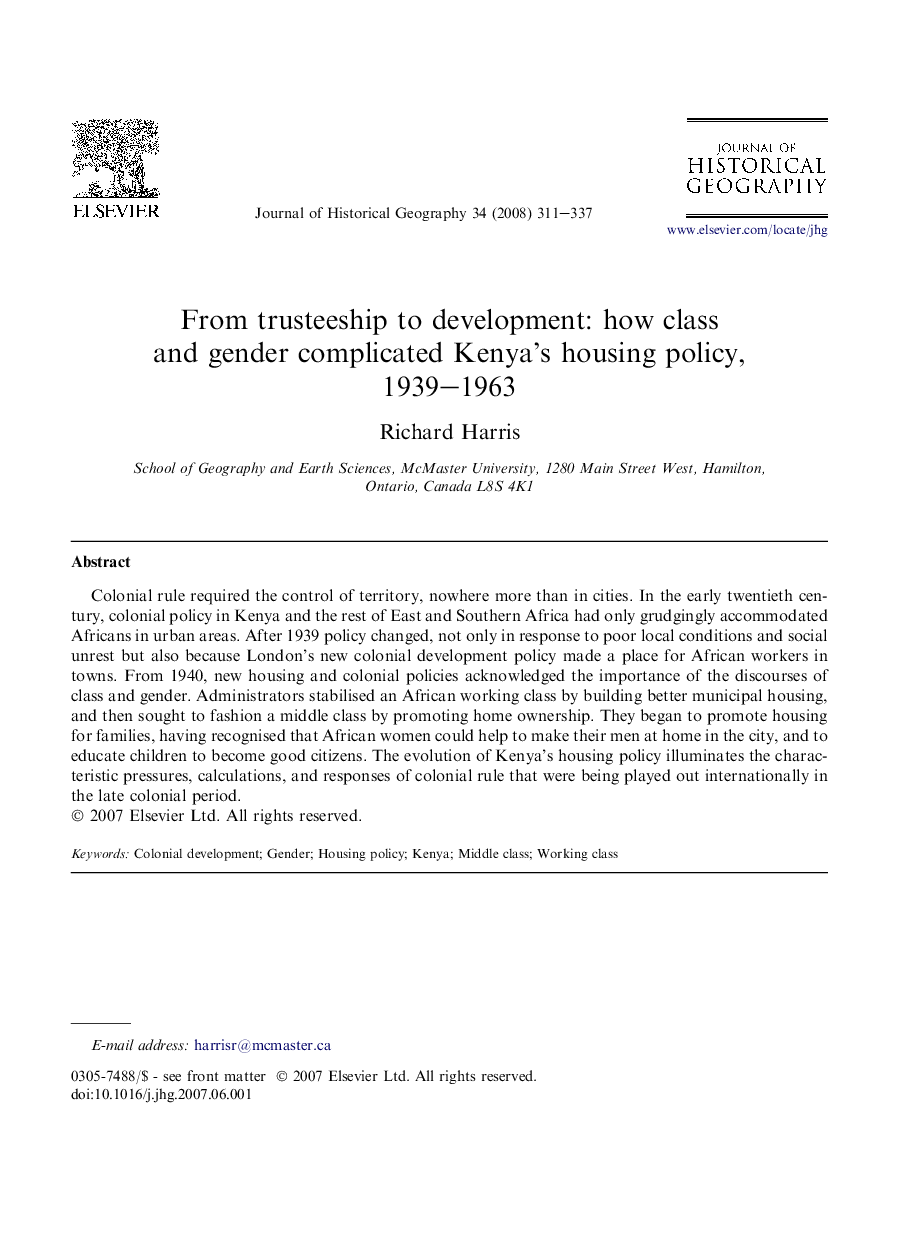| کد مقاله | کد نشریه | سال انتشار | مقاله انگلیسی | نسخه تمام متن |
|---|---|---|---|---|
| 1039482 | 944300 | 2008 | 27 صفحه PDF | دانلود رایگان |

Colonial rule required the control of territory, nowhere more than in cities. In the early twentieth century, colonial policy in Kenya and the rest of East and Southern Africa had only grudgingly accommodated Africans in urban areas. After 1939 policy changed, not only in response to poor local conditions and social unrest but also because London's new colonial development policy made a place for African workers in towns. From 1940, new housing and colonial policies acknowledged the importance of the discourses of class and gender. Administrators stabilised an African working class by building better municipal housing, and then sought to fashion a middle class by promoting home ownership. They began to promote housing for families, having recognised that African women could help to make their men at home in the city, and to educate children to become good citizens. The evolution of Kenya's housing policy illuminates the characteristic pressures, calculations, and responses of colonial rule that were being played out internationally in the late colonial period.
Journal: Journal of Historical Geography - Volume 34, Issue 2, April 2008, Pages 311–337